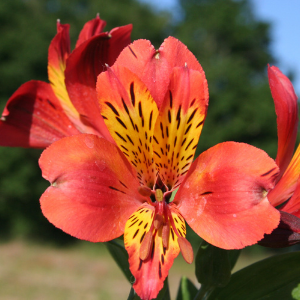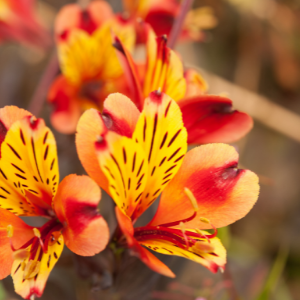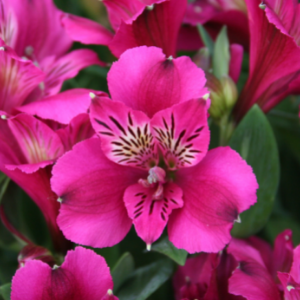This year is the 99th year of the RHS Chelsea Flower Show and it’s going to be an invigorating, inspiring and most welcome distraction!
From 21-26 September you will be able to, once again, savour the show virtually from the comfort of your couch. However, for those up for an outing and some fresh air, you will be able to see, smell, touch all the flowers in all their petally glory!
Hooray! We're excited too!
Although we appreciated the virtual show last year and earlier this year, we must admit, it wasn’t quite the same. After a challenging period of time this is a great opportunity to leave the stress behind us and immerse ourselves in the restorative powers of nature.
That’s why, at this years show, the therapeutic value of having plants around is being celebrated as well as the life and work of nurses and the NHS, with a series of show gardens dedicated to honouring the nursing profession.
An Autumn Show
The shift from May to 21-26 September means a different kind of atmosphere, but Autumn has just as much to offer as Spring. In fact, Autumn is the perfect time for Alstroemeria as their flowering season extends right up until October. Parigo Alstroemeria will be exhibiting again at RHS Chelsea after nearly two decades so keep your eyes peeled for that. You will also see the likes of Salvia, Dahlia and an array of grasses and fruit and vegetables.
You’ll have the chance to bask in show-stopping gardens designed by famous designers and many wonderfully creative floral artworks. There'll be plenty of neat ideas and advice on growing plants in containers, inside and out, as well as gardening on your balcony or in any other small space.
The Chelsea Flower Show is a magnificent melting pot of horticultural specialists, florists, nurseries and designers producing a fabulous explosion of creative expression! This is the place to see what’s trending in the gardening world with products such as gardening tools, sculptures and, of course, plants aplenty.
Some gardens to look out for:
Guide Dog’s 90th Anniversary Garden - telling the story of when the first guide dogs were trained in the 1930s for blind war veterans and the wonderful work these creatures do, bringing liberation and connection to the blind.
Bodmin Jail: 60° East – A Garden Between Continents - a blend of European and Asian plants brought together by the landscapes of the Ural Mountain creates a refreshing and calming, atmospheric journey
Green Sky Pocket Garden - showing innovative use of smaller outdoor spaces, bringing nature back into the city.
Pop Street Garden – a colourful pop and street art inspired space to hang out and have some post-lockdown fun!
This show is not to be missed!
Even if it should rain, the show must go on! In fact one year when it was a thoroughly rainy show, one of the exhibitors dubbed it ‘The Chelsea Shower Flow’ (more odd facts here).
Due to covid safety precautions, the number of visitors will be less than in previous years so it’s best to book those tickets as soon as possible.
And if you don’t manage to nab a ticket to the show you can still enjoy the festivities by taking a walk through the streets of Chelsea. They’ll be full of all things flower with themed floral activities and displays.









